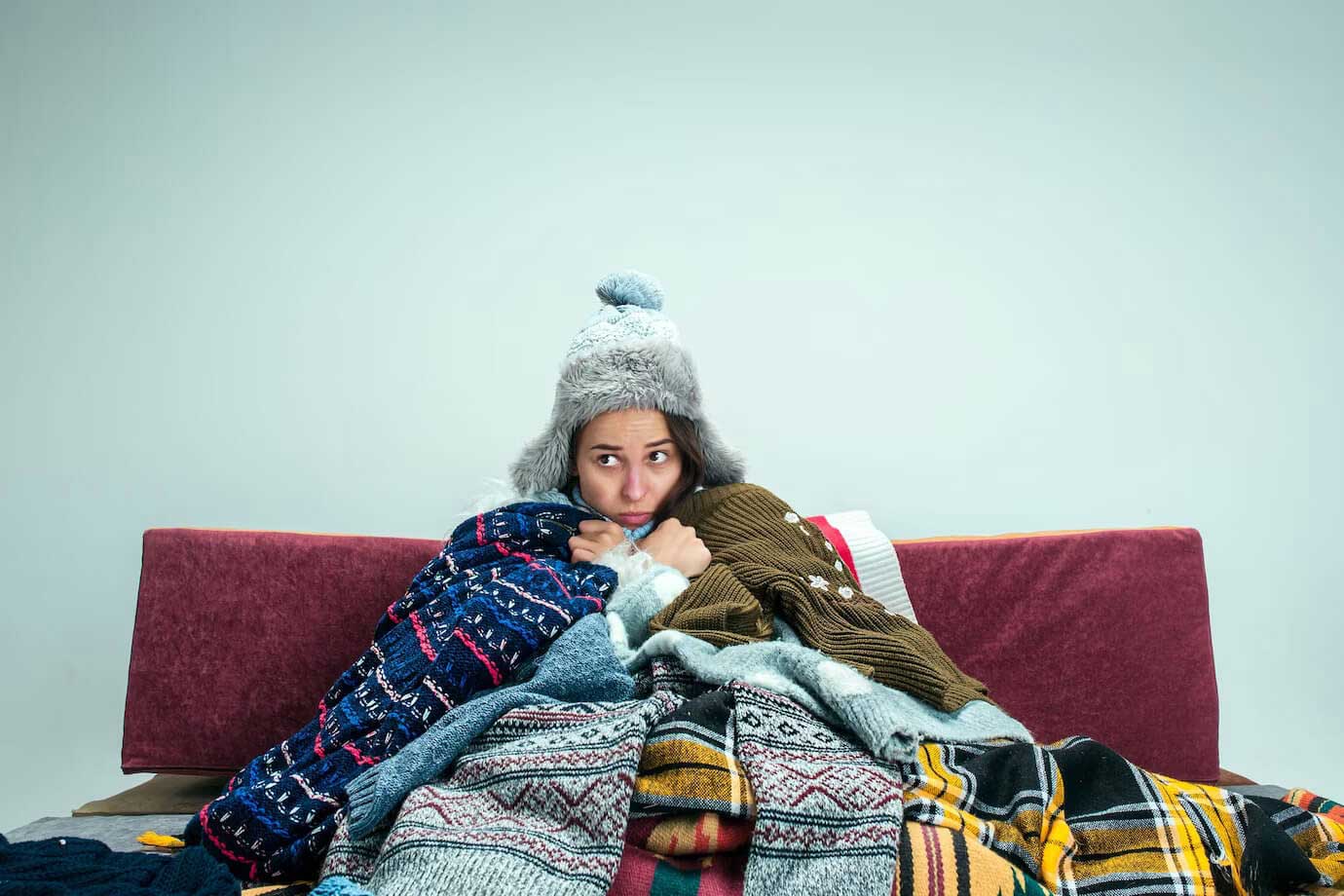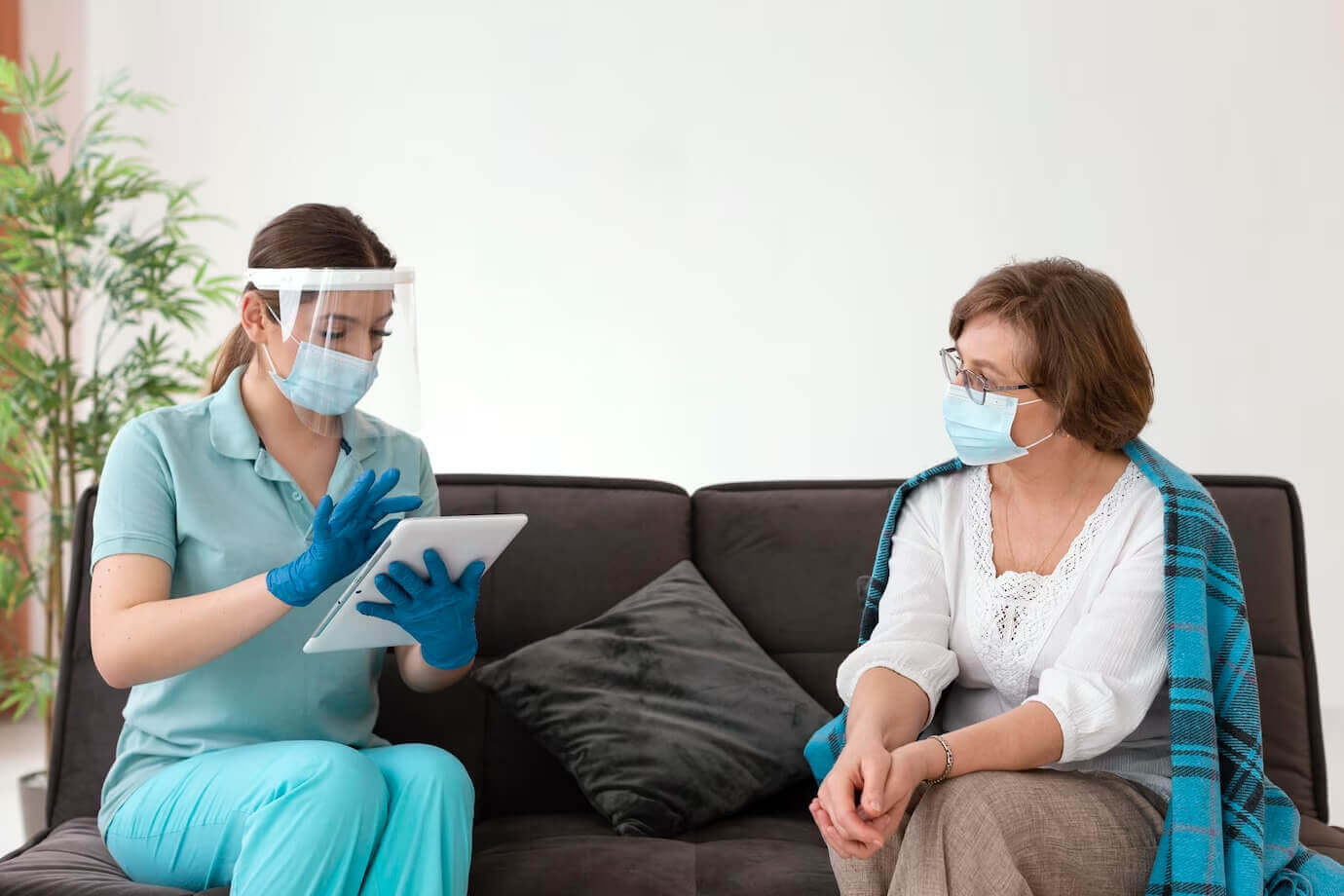
The winter season is upon us! The dropped temperature demands a lot of changes.
The winter season is upon us! Whether you are inside your house or outside, the penetrating cold will never leave you alone. The adverse effects of the winter season that include fever, infections, and injuries among others, can deteriorate your health and disturb your life. Therefore, the onset of winter season calls for a cautious attitude, and all age groups should take care of important measures for staying healthy and safe during this season. The dropped temperature demands a lot of changes in your clothing, eating, and living habits altogether. These much-needed changes can help you combat the harmful effects of the freezing winter season:
Safety Outside During Winter
Even for those who are more confident in their footsteps, it’s hard to go through all winter months without at least one “oops!” Slipping on a patch of ice is unsightly at the best of times … We can end up on the buttocks or, worse, injure ourselves.
These measures are aimed not only at your safety and that of your loved ones, but also that of letter carriers and those delivering supplies to your neighborhood.
Opt for boots or shoes with rubber soles or add traction to your boots with non-slip soles (like putting winter tires on your feet!).
Carry fewer bags and packs when walking on slippery surfaces, as the excess load can cause you to lose your balance and, if necessary, prevent you from catching up.
How Does It Help Prevent Falls? When you wear gloves or mittens to keep your hands warm, you won’t be inclined to put your hands in your pockets. With hands-free, it will be easier for you to catch up if you lose your balance.
When the temperature drops, our body goes into survival mode, causing the blood vessels to constrict to conserve heat and maintain body temperature. Thus, the blood circulation takes longer to reach and warm the tips of the toes and fingers. To maintain blood flow to our extremities loosen the boots, waterproof your extremities, put on the appropriate gloves for the circumstances, put on appropriate socks for the circumstance.
Cold wind can produce the effect of a sandblast on your skin. Under the abrasive effect of the wind, the heat evokes a sunburn and the skin becomes red and irritated. The best prevention is to keep the wind from coming into contact with your skin.
Wrap a scarf around the lower portion of your face or go ninja style with a balaclava – a ski mask that covers your entire face.
Cover your cheeks, nose, and lips with a layer of moisturizer or petroleum jelly to lock in moisture and prevent dryness of the skin.

Indoor Safety during Winter
A blanket always promises cozy warmth. Add electricity to it and you will quickly get heat for the colder winter nights.
In many homes, vaporizers and humidifiers help alleviate dryness in the air, preventing dry skin, throat irritation, congestion, and nosebleeds.
Ahhh, how romantic and warm, a crackling fire! A wood fire creaks, crackles, and radiates a comforting heat throughout the room.
Carry fewer bags and packs when walking on slippery surfaces, as the excess load can cause you to lose your balance and, if necessary, prevent you from catching up.

4 Healthy Habits Not To Put On Ice in Winter
You probably drink a lot of water in hot weather, but do you do the same in cold weather? Although the cold makes you sweat less, your body still needs hydration to stay healthy and prevent dry skin. You can meet your daily fluid needs with hot chocolate, tea, and other comforting drinks, but having a bottle or glass of water on hand would be a good idea.
This is another habit that may feel more natural in June than in January. The reality is that the sun is harmful to the skin, in winter as well as in summer. And that, not to mention the light reflected by snow and ice. Since the skin tends to dry out in winter, apply a moisturizer with an SPF of at least 15 every day.
You put on your sunglasses for a walk on a sunny beach, right? Why not wear them on a dazzling winter day? Snow reflects more ultraviolet rays than dry sand. The ability of UV radiation to damage the eyes remains the same, regardless of the temperature. So, don’t put away your sunglasses at the end of summer with your swimsuit and beach towels!
Sunlight dims in the winter as the days get shorter and we go into hibernation mode. When our skin is less exposed to the sun, we are deprived of our main and best natural source of vitamin D (10 minutes of sun exposure gives us enough vitamin D to meet our daily needs). This vitamin helps our body absorb calcium to maintain bone health. Get your vitamin D from foods like eggs and milk as well as fatty fish like salmon. You can also take a supplement containing 600 to 1000 IU (international units) of vitamin D if you are under 70, or a supplement of 800 to 1000 IU if you are over 70 years old.
To schedule an appointment with us please contact our specialist @info@cmclancaster.com or call us on 972-850-2845.
Related Blogs
When going on a trip before the era of COVID-19 required planning. You had [...]
Read More
Covid 19 is now part of our everyday life. The virus can be anywhere [...]
Read More

